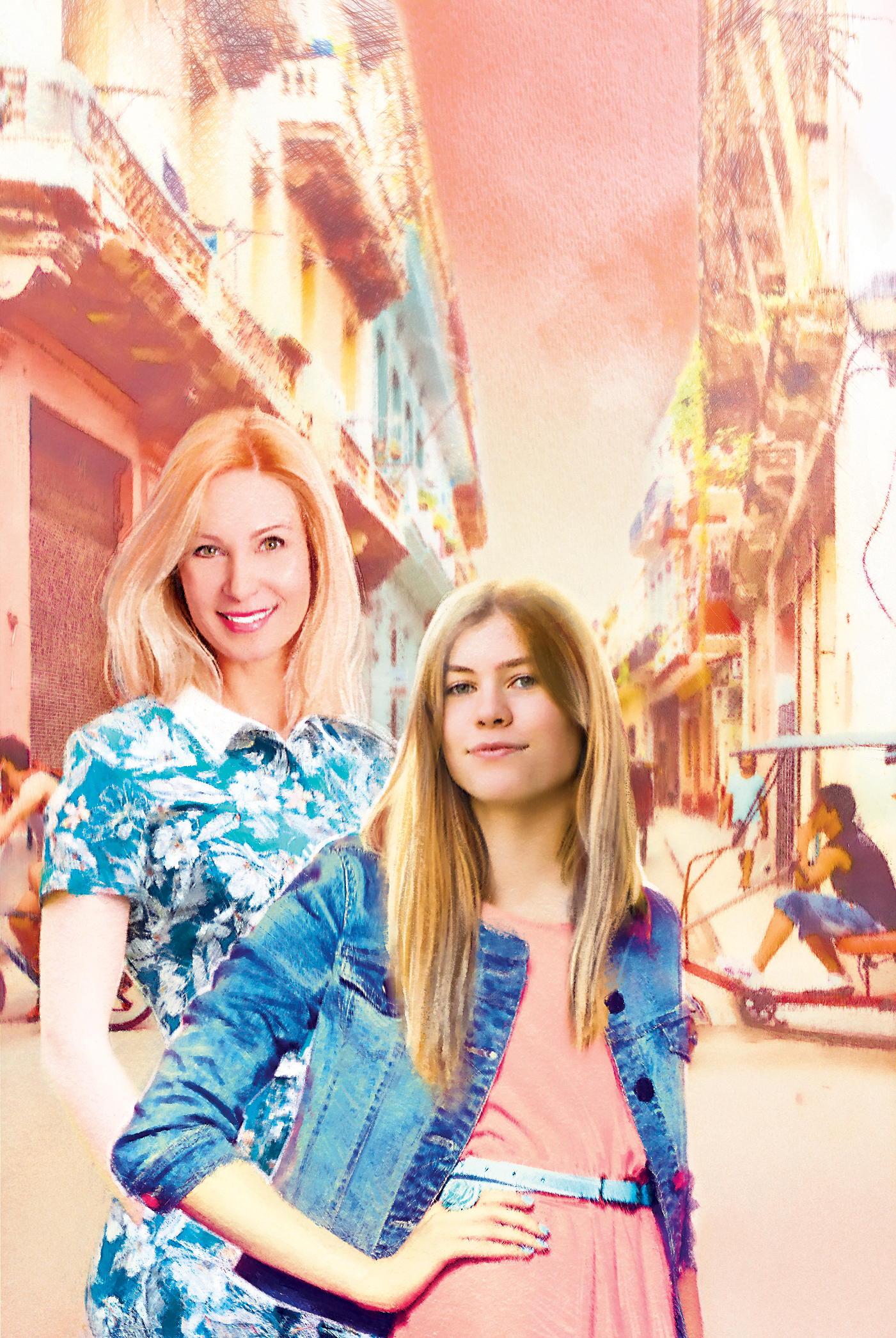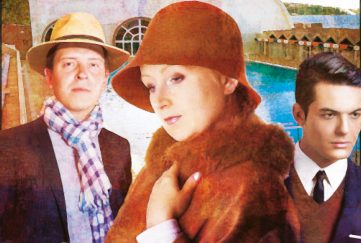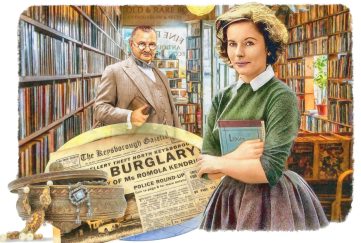Danger In Havana – Episode 03

Danger In Havana by Cara Cooper
« Previous Post- 1. Danger In Havana – Episode 01
- 2. Danger In Havana – Episode 02
- 3. Danger In Havana – Episode 03
- 4. Danger In Havana – Episode 04
- 5. Danger In Havana – Episode 05
- 6. Danger In Havana – Episode 06
MARK knew he shouldn’t have come here, he should have cancelled. But his boss wouldn’t hear of it.
“Take the time out, Mark. Detective Sergeants with marital problems make rotten policemen. Use this holiday to get your head in order and get yourself fully sorted. And don’t come back until you’ve stopped brooding, and you’re a hundred percent. That’s an order.”
Had it done the trick? Here he was, in this place of sugar cane and trade winds, of beaches and coffee-coloured beauties, and his mind was still 4,500 miles away. And he was still brooding.
Mark raised his gaze from the floor. Something caught his attention. A minor ruckus over by Reception.
An English woman with shoulder-length hair curling uncontrollably in the humidity. Slim but curvy, too heavily clothed for the hot weather, skin still winter pale and untouched by the sun’s rays. A new arrival.
She was clearly panicking and calling to a young girl of maybe eighteen or nineteen, who hadn’t noticed the other woman’s problems since she was talking animatedly to a young man who had engaged her in conversation.
It was in Mark’s nature to sort things. He never could sit back and do nothing. He pulled his six-foot two frame out of the chair and ambled over.
The daughter – for the family resemblance was unmistakable – was glowingly attractive, a small neat nose like her mother’s, peppered with freckles, her eyes lively. The only difference was the colour of their hair. The daughter’s was still baby blonde.
Mark wished he and Pippa had been able to have children. He would have burst with pride to be able to boast a daughter like that. A child would have been something to cling on to when she’d left.
It was going to be a shame to interrupt what seemed to be the teenager’s excellent attempt at speaking German to the young man, who laughed loudly at a shared joke. The young had that wonderful ability to live completely in the moment. They had no history of broken relationships, of shattered dreams to haul them into the past, or hopes for things that might be, to project them into an uncertain future.
Mark would have stayed out of it but there was something about the small tableau which troubled his detective’s eye. Something he had half seen but wasn’t sure of, something he wanted to check.
Mark gently touched the girl’s arm.
“I think your mother needs help.”
Immediately the girl dropped her conversation. She stopped mid-sentence and turned away from the young man as surely as if he had donned a cloak of invisibility and disappeared.
A guilty flush rose in her cheeks as if she knew her parent needed looking after and that she had taken her eye off the ball.
There was a family dynamic going on there, deep layers of need, and Mark wondered what it was that they shared which meant they needed each other, but also, perhaps, desperately needed to break free of their bonds.
“Are you OK, Mum? Are you all right? Has anything happened?”
“It’s my passport, I can’t find it.” The note of panic in the woman’s voice cut through the air.
“You put it in your money-belt, Mum, under all those clothes. It’s just like when you search for your glasses and find them on your head.”
The girl’s voice was soothing, if frustrated. The two of them had forgotten Mark; they were wrapped in each other’s worlds. It was obviously a well-worn pattern, this need to work together to resolve a crisis, one supporting the other.
Mark wandered away. He should leave them to it, not get involved. He was meant to be on holiday.
He wasn’t meant to be tangling himself up in other people’s complicated, precarious lives. He wasn’t at work now, this was meant to be downtime.
Instead, the thing he had only suspected earlier he became more sure of, and it worried him. Once a detective, always a detective.
Mark picked up a street map, peering at it, seemingly intent on studying the best one to buy. But out of the corner of his eye to his right, he saw a man, stout, with a beer belly and a clipped beard dappling his chin.
The man held up his phone as if he was trying to shield it from a sunny window. In fact, Mark could have sworn he was taking photos of the Englishwoman and her daughter.
Photo after photo.
Mark turned his head a fraction to see if there was something noteworthy the man might be interested in above the reception desk. A painting, maybe, or a poem or saying by Che Guevara in an ornate plaque which might have caught a tourist’s eye. People on holiday snapped the most mundane things.
But there was nothing, just blank marbled walls.
Mark turned back to study the stranger.
He would even have gone over and confronted him, asked him in a pointed way if he could help him. But, like a magician disappearing in a puff of smoke, the man had gone, disappeared and melded into the midday crowds.
Not only had Mark failed to keep track of the man, but the mother and daughter had wandered off. Still, the Cuban heat hadn’t robbed Mark of all his powers of detection.
As the two women, hooked arm in arm, trailed after the bellboy away across the lobby, Mark approached the desk and handed the girl a large denomination note.
“Can you please let me have some change in Cuban convertibles?” The receptionist turned her back to unlock a cash box behind the counter, and started counting out change.
Luckily, she gave Mark just enough time to tilt his head and scan the form she was processing. In a bold hand Mark read the names,
Mrs Bryony Kemp, Miss Anna Kemp.
He wondered where Mr Kemp was and why on earth he wasn’t accompanying those two beautiful but somewhat vulnerable women, and when he might appear.

















